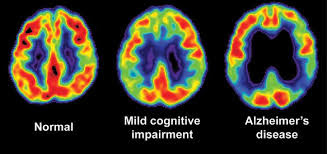I’m in the grip of nervous anticipation; this week I
will have my first conversation with Chantelle, an enterprising young woman and
entrepreneur, based in South Africa, who, whilst studying to become a clinical
psychologist, has found the time to establish a charity, Educating Athletes, which seeks to support
aspiring athletes from disadvantaged backgrounds through their secondary
education, by providing financial, academic and emotional assistance. Chantelle
and I have been paired through the Queen’s Young Leaders
Programme, with whom I have been a mentor since the Programme was
established. The Queen Elizabeth Diamond Jubilee Trust, in partnership with
Comic Relief and the Royal Commonwealth Society, created the Queen’s Young
Leaders Programme in honour of The Queen’s 60 years of service to the
Commonwealth, with the goal of helping the next generation to achieve their
aspirations.
Chantelle will be my third Queen’s Young Leaders mentee
and I can’t wait to get to know her. I hope in some small ways I can help her
achieve her goals. I find it immensely rewarding being a mentor; I learn so
much from the people to whom I am introduced, not just about them, their
challenges, visions and hopes, but also I gain an insight into myself, and a
better appreciation of what I value. The Young Leaders really are inspirational
– they blow new energy and insights into me, and the others who come into
contact with them. (The etymology of “inspirational” comes from the Latin
“spirare” meaning “to breathe” and was originally used to refer to a divine or
supernatural being imparting a deep truth or idea – each of the Leaders I have
met to date is driven by strong personal values and a vision of what they hope
to achieve).
If you are interested in mentoring an extraordinary
young person, and, by doing so, helping them to make the world a better place,
then contact Frances Brown,
the Education and Mentoring Director for the Programme. She is based at
Cambridge University, in the UK and her email is frances.brown@ice.cam.ac.uk.
Over the course of its five-year life span, the Programme aims to discover,
celebrate and support young people from every Commonwealth nation to transform
their own lives and the lives of others around them. I have had the good
fortune to mentor Edmund, who is based in Kenya and has founded a thriving
charity, the Xavier Project, that
is now functioning in a number of countries, it provides support to refugees
and their families; and a young lady, Seini, who works as a volunteer in Papua
New Guinea and champions equality for women and the necessity of learning from
past generations so as to reduce the negative impact of decisions that we make and
the actions we take now.
In some ways, Seini’s
vision is the theme of the ballet I went to see on Saturday night - Ghost Dances, performed by Rambert at Sadler’s Wells.
Ghost Dances was inspired by the moving book written by Joan Jara,
the widow of the Chilean teacher, theatre director and folk singer, Victor Jara, who was kidnapped
and then murdered shortly after General Pinochet’s brutal coup in 1973. Joan
wrote her heart-rending record of events in Victor: An Unfinished Song, it describes the rise
and then loss of this inspirational and creative man.
 |
| Victor Jara |
Her words have moved
others into confronting the horrors of oppression and have inspired many to
strive for a compassionate and more humane world. Chile suffered a period of
intense and ruthless repression following the coup, an estimated 35,000
civilians were put to death and thousands more imprisoned and tortured. Ghost Dances was last performed at
Sadler’s Wells 14 years ago, which is where I first saw it. The memory of that
performance has stuck with me as if it was yesterday. Each time I have seen the
ballet I have been reduced to tears. I remain appalled by the horrific manner
in which we treat our fellow man – we seem incapable of learning from
our past - look at the ghastly bombing in Manchester this week, the ongoing war in Syria, terrorism in Nigeria, Sudan and Mexico, the list feels endless. We will only change the world for the better if we take personal
responsibility and inspire others to do the same.
 |
| Some who disappeared in Chile during Pinochet coup picture taken during demonstration in Santiago on 40th anniversary of coup. |
So, what makes a person inspirational?
Do people who inspire have to have overcome
something in order to make an impact on others? Probably not, but they do need
to demonstrate bravery, hence the
phrase “having the courage of their convictions”. Most of the inspirational people
I have known have willingly walked a different path from those around them and
have not been afraid to buck the trend. My grandmother has been a major source
of inspiration for me (and still is, despite no longer being here to act as my
mentor) – she was born the illegitimate daughter of a housemaid in rural
southwest Scotland. Through her own drive and determination she studied hard, qualified
as a nurse, emigrated, married an engineer (who was involved in pioneering
exploration in the Middle East) and she herself became a significant influence
in the region and in London on their return. Her husband died when she was
still young, but she raised two children – both of whom became notable people –
my father was the Attorney General of Hong Kong, he is an exceptional lawyer
and remains a Bencher of Middle Temple, and his sister married my father’s best
friend from Cambridge and became the wife of the Lord Mayor of London as well
as a champion of charitable causes. Humble roots need not hold you back if you
have values, drive and determination. My grandmother was very popular with my
father’s friends - her flat became a haven, a place where they could study and
debate topics of interest. She always encouraged people to think, to believe in
themselves and to act with integrity. Every day I think of her (and miss her)
but her spirit and lessons, in how to live life well, remain with me.
 |
| My grandmother |
Inspirational people clearly care – and are usually driven
by a greater cause, rather than their own self-aggrandisement.
They have an understanding
of their environment and are aware and appreciative
of others, but they are also
self-aware and comfortable in their
own skin. Empathy and authenticity –
both are needed to carry people with you.
Most of the inspirational people I have met have
been humble and very grateful for the opportunities they
have had – be that an education or the ability to mix with and help others
and/or the assistance others have given to them – they seldom seem to
appreciate that people give to them and support them in their cause because of
who they are and what they do.
A person cannot be inspirational through fine words
alone – they need to “walk their talk”.
I know that I will never be inspirational because, all too often, I fail to
follow my own advice, when I should be leading by example. For example, I work
stupid hours instead of spending time with precious loved-ones. I’m not aware
of anyone when on their deathbeds saying: “Thank goodness I finished that extra
spread sheet” – in the modern workplace it is all too easy to get sucked into
the morass of demands and timelines and thereby lose sight of what’s important.
 |
| Working late - by TULP |
Most inspirational people are surprisingly pragmatic and well-grounded – they know their goals, but are willing to adapt
the path and pace in order to ensure that they get there. They seldom take
themselves too seriously as they know that the praise and accolades (when they
come) are for what they do and not just for who they are. In ancient Rome a
victorious General was permitted to process in Triumph in a four-horse
chariot through the streets, wearing a laurel crown and a toga of imperial
purple. For that day he was viewed as above other mortals and near divine.
However, he was required to conduct himself with dignified humility - a slave would
travel with, standing behind him in the chariot, whispering reminders of his
mortality to help him escape hubris.
The Ancient Greeks and Romans even had specific goddesses who enacted
retribution against people who succumbed to hubris – in the ancient Greek
religion it was Nemesis
and in Roman times, Invidia.
 |
A panel from a Roman sarcophagus showing the Triumph of Marcus Aurelius Capitoline Museum, Rome |
Truly inspirational people do not engender envy in
others, instead they encourage people to become the best they can be.
Inspirational people seem to breathe encouragement
and confidence to do the right thing into those around them. No wonder I am
waiting to speak with Chantelle with bated breath and a degree of nervous
anticipation. It is nearing my time to inhale.
"Breathe" - Pink Floyd
Breathe, breathe in the air
Don't be afraid to care
Leave but don't leave me
Look around and choose your own ground
For long you live and high you fly
And smiles you'll give and tears you'll cry
And all you touch and all you see
Is all your life will ever be
Run, rabbit, run
Dig that hole, forget the sun,
And when at last the work is done
Don't sit down, it's time to dig another one
For long you live and high you fly
But only if you ride the tide
And balanced on the biggest wave
You race toward an early grave.
Don't be afraid to care
Leave but don't leave me
Look around and choose your own ground
For long you live and high you fly
And smiles you'll give and tears you'll cry
And all you touch and all you see
Is all your life will ever be
Run, rabbit, run
Dig that hole, forget the sun,
And when at last the work is done
Don't sit down, it's time to dig another one
For long you live and high you fly
But only if you ride the tide
And balanced on the biggest wave
You race toward an early grave.



















